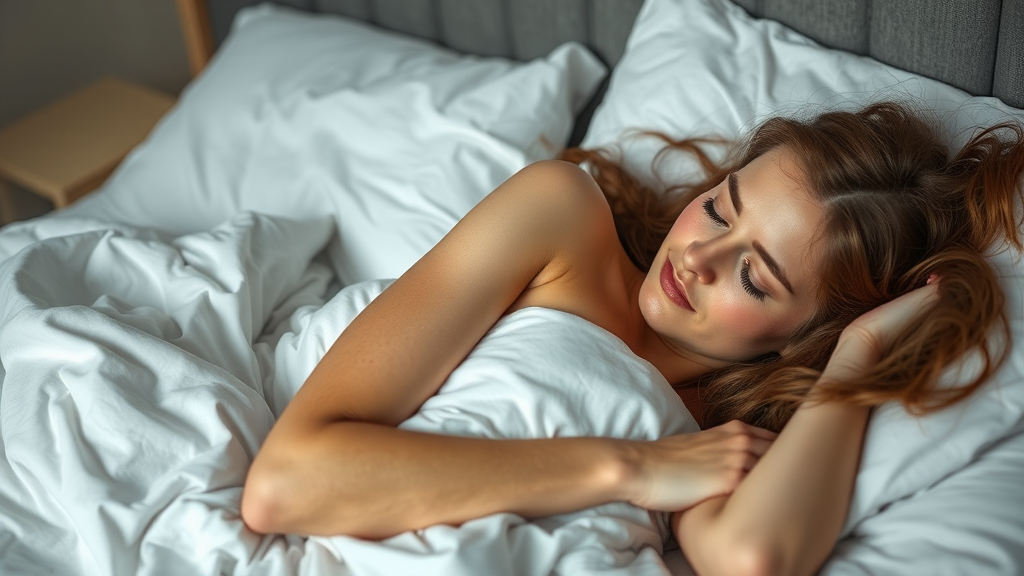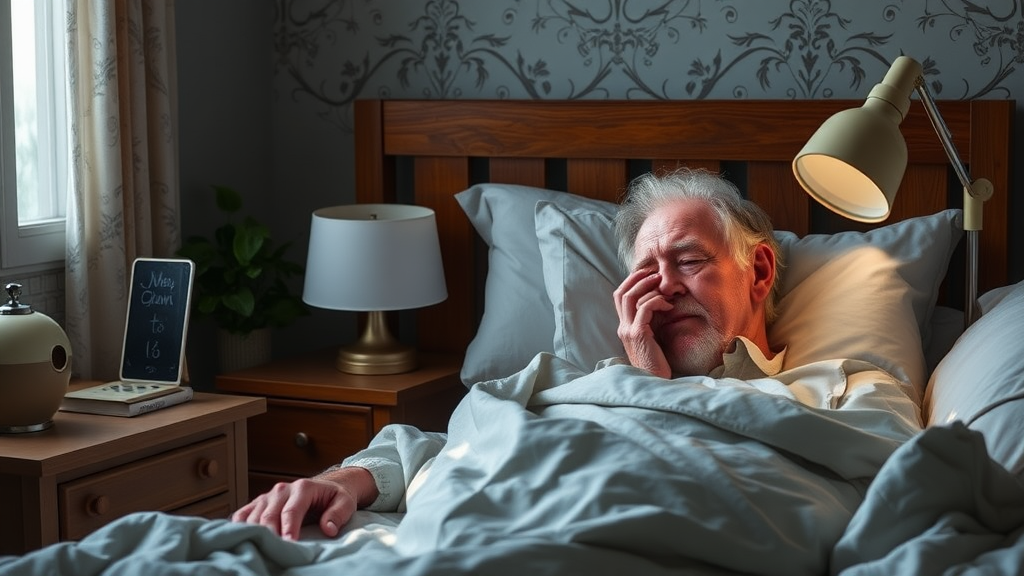Do women sleep better than men? An Exploration of Sleep Quality Differences
When it comes to sleep, many people wonder about the differences between men and women. Do women sleep better than men? Research suggests that there are notable variations in sleep quality between the genders, influenced by biological, psychological, and social factors. Understanding these differences can help each of us tailor our sleep habits for better rest.
Biological Factors Affecting Sleep
Biology plays a significant role in how men and women experience sleep. Hormonal differences can alter sleep cycles. For instance, women often face fluctuations due to the menstrual cycle, pregnancy, and menopause, all of which impact sleep quality.
- Menstrual Cycle: Hormonal changes during different stages can lead to sleep disturbances.
- Pregnancy: Many women report difficulty sleeping during pregnancy due to physical changes and anxiety.
- Menopause: Hot flashes and hormonal shifts can disrupt sleep patterns considerably.
Sleep Quality Indicators
Several studies have been conducted to compare sleep quality. When evaluating how women and men sleep, researchers look at factors such as:
- Duration of sleep
- Sleep interruptions
- Sleep disorders
- Daytime sleepiness
Generally, women tend to have longer sleep durations but may experience more interruptions. In contrast, men often fall into deeper sleep stages more quickly but can suffer from sleep disorders like sleep apnea more frequently.
Psychological Influences on Sleep
Another element influencing the sleep experience is psychology. Women, on average, report higher levels of stress and anxiety, which can lead to sleep issues. Mental health conditions, such as depression and anxiety, can affect sleep quality and quantity. In contrast, men may express their stress in different ways, which may not impact their sleep as severely.
Social Factors and Responsibilities
Social norms also shape sleep behaviors. Women often juggle multiple roles, such as work, childcare, and household responsibilities. This multitasking can lead to stress and irregular sleep patterns. Men, while equally affected by social responsibilities, may feel less pressure to balance these roles with perceived expectations of masculinity. This difference in responsibilities can influence their overall sleep experience.
| Factor | Women | Men |
|---|---|---|
| Average Sleep Duration | About 7-9 hours | About 6-8 hours |
| Sleep Interruptions | More frequent | Less frequent |
| Common Sleep Disorders | Insomnia, Restless Leg Syndrome | Sleep Apnea |
| Daytime Sleepiness | Higher prevalence | Lower prevalence |
Strategies for Better Sleep
Regardless of gender, everyone can benefit from sleep strategies that improve sleep quality. Here are some effective tips:
- Establish a Routine: Go to bed and wake up at the same time each day.
- Create a Sleep-Friendly Environment: Ensure your bedroom is dark, quiet, and cool.
- Limit Screen Time: Reduce exposure to screens at least an hour before bedtime.
- Practice Relaxation Techniques: Meditation, deep breathing, or gentle yoga can help calm the mind.
While research indicates that women may sleep differently than men, it is essential to recognize that individual experiences vary widely. Everyone deserves quality sleep, regardless of gender, and understanding these differences can encourage more tailored sleep practices. Focusing on improving sleep hygiene can help both men and women achieve better rest, leading to improved health and wellness overall.
The Impact of Hormones on Sleep Patterns in Men and Women
Have you ever wondered why you sleep differently than others? Research shows that hormones play a significant role in sleep patterns for both men and women. Let’s delve deeper into how hormonal differences affect sleep quality and duration for the sexes.
Understanding Hormonal Influences
Hormones are chemical messengers that regulate numerous bodily functions, including sleep. The primary hormones involved in sleep include:
- Melatonin: Often referred to as the sleep hormone, melatonin regulates sleep-wake cycles.
- Cortisol: Known as the stress hormone, cortisol levels impact when we feel awake or tired.
- Estrogen: This hormone, higher in women, can influence sleep quality and patterns.
- Progesterone: Also more prevalent in women, progesterone can induce drowsiness.
- Testosterone: In men, testosterone levels can impact REM sleep and overall sleep quality.
Men’s Sleep Patterns
Men typically experience more interruptions during their sleep cycles, often due to factors like high cortisol levels and varying testosterone. Here are some key points about men’s sleep:
- Men have a tendency to sleep for shorter durations compared to women.
- The quality of sleep might be affected by lifestyle choices such as diet, alcohol consumption, and stress levels.
- Research indicates that men may have a higher risk of sleep apnea, which can disrupt sleep and lead to chronic fatigue.
Women’s Sleep Patterns
Women, on the other hand, have unique hormonal changes throughout their lives that can dramatically affect their sleep patterns:
- Estrogen tends to enhance sleep quality, providing a protective effect during the reproductive years.
- Dramatic hormonal fluctuations during menstrual cycles, pregnancy, and menopause can lead to sleep disturbances.
- Women are more likely to report sleep disorders, and conditions such as insomnia are prevalent.
Hormonal Changes Across Life Stages
In both men and women, sleep patterns evolve due to hormonal changes across different life stages:
| Life Stage | Men | Women |
|---|---|---|
| Adolescence | Higher testosterone levels lead to more REM sleep. | Estrogen starts to rise, improving sleep quality. |
| Adulthood | Cortisol levels may increase, causing more sleep disturbances. | Monthly hormonal fluctuations can cause varying sleep patterns. |
| Menopause | Possible increase in cortisol leading to insomnia issues. | Dramatic drops in estrogen can result in hot flashes, leading to broken sleep. |
Coping Strategies for Better Sleep
Understanding the impact of hormones on sleep can help both men and women find ways to improve their rest. Consider these strategies:
- Create a Sleep Routine: Try to go to bed and wake up at the same time every day.
- Limit Screen Time: Reduce exposure to screens an hour before bedtime to help melatonin production.
- Manage Stress: Practicing relaxation techniques like meditation or yoga may lower cortisol levels.
- Exercise Regularly: Physical activity can help alleviate insomnia and regulate hormone levels.
- Consult a Healthcare Professional: If sleep issues persist, seeking medical advice can provide tailored solutions.
By educating ourselves about how hormones shape our sleep, we can take proactive steps towards improving our sleep quality. Remember, good sleep is critical for both physical and mental health, so it’s worth paying attention to how your body responds to hormonal changes.
How Lifestyle Choices Affect Sleep: Gender Perspectives
Sleep plays a vital role in an individual’s overall health and well-being. However, how well we sleep can often depend significantly on our lifestyle choices, which can vary considerably between genders. Research shows that women and men often have different sleep patterns, behaviors, and hygiene practices, largely influenced by their unique lifestyle choices. By exploring these factors, we can better understand how they affect sleep quality for both genders.
Understanding Sleep Differences in Men and Women
Studies have shown that women tend to sleep longer than men, averaging about 20 minutes more sleep per night. The differences can be attributed to several lifestyle and biological factors, including hormonal fluctuations and stress levels. Here are some essential factors contributing to this disparity:
- Hormonal Factors: Women experience monthly hormonal changes due to their menstrual cycle, which can influence their sleep patterns. Estrogen and progesterone levels significantly affect deep sleep, often promoting better quality sleep during certain phases.
- Stress Levels: Women typically report higher levels of stress and anxiety, which can negatively impact their ability to fall and stay asleep. This stress can stem from multiple responsibilities, including work, family, and personal relationships.
- Sleep Disorders: Conditions like insomnia and sleep apnea can affect both genders but manifest differently. Women may face more difficulty with insomnia, while men are more likely to experience sleep apnea, which can disrupt sleep cycles.
Lifestyle Choices and Their Impact on Sleep
Your daily routine has a profound impact on how well you sleep at night. Here are some lifestyle choices that can positively or negatively affect sleep, particularly from a gender perspective:
| Lifestyle Choices | Impact on Sleep |
|---|---|
| Diet | Heavy meals close to bedtime can lead to poor sleep; women often focus on healthier foods which may help with better sleep quality. |
| Exercise | Regular physical activity promotes better sleep quality. Women often engage in group exercises for social interaction, benefiting both sleep and well-being. |
| Screen Time | Men are more likely to engage in late-night gaming or work, while women tend to watch TV or use their phones, affecting sleep onset and duration. |
| Sleep Environment | Women are more likely to prioritize comfort and cleanliness in their sleep environment, contributing to better sleep quality. |
Sleep Hygiene Practices
Improving sleep hygiene can lead to better sleep quality for both genders. Here are some practices to consider:
- Keep a Sleep Schedule: Go to bed and wake up at the same time every day, even on weekends.
- Create a Relaxing Bedtime Routine: Engage in calming activities such as reading, meditating, or taking a warm bath before bedtime.
- Avoid Stimulants: Limit caffeine and nicotine intake, especially in the hours leading up to bedtime.
- Limit Naps: If you take naps, keep them short and avoid napping late in the day.
Ultimately, the interplay of gender, lifestyle choices, and personal habits shape how we experience sleep. By recognizing and addressing these differences, both men and women can enhance their sleep quality through better lifestyle practices tailored to their unique needs. Understanding that sleep is not a one-size-fits-all scenario allows individuals to adopt strategies that work specifically for them, potentially leading to improved health and well-being.
Understanding Sleep Disorders: Are Women More Vulnerable?
Sleep disorders can affect anyone, but studies suggest that they may impact women differently than men. This difference may stem from a variety of factors, including biological, psychological, and social influences. Understanding these factors can help us grasp why women might be more vulnerable to sleep disorders.
Biological Factors
One key reason women may be more susceptible to sleep disorders lies in their biological makeup. Hormones play a significant role in sleep regulation. Hormonal changes during menstruation, pregnancy, and menopause can disrupt sleep patterns and lead to insomnia or other sleep-related issues. Here’s a closer look:
- Menstrual Cycle: Many women experience sleep disturbances linked to hormonal fluctuations during their menstrual cycle.
- Pregnancy: The physical and hormonal changes during pregnancy can lead to discomfort and sleep issues.
- Menopause: Hormonal shifts during menopause often result in sleep disruptions, including night sweats and hot flashes.
Psychological Factors
Alongside biological aspects, psychological factors may also contribute to sleep disorders in women. Women are statistically more likely to experience anxiety and depression, which can have a profound effect on sleep quality. Conditions such as:
- Anxiety Disorders: These can cause racing thoughts and restlessness, making it hard to fall asleep.
- Depression: This can disrupt sleep patterns and lead to excessive sleepiness during the day.
Social Factors
Social influences can also play a significant role in sleep quality for women. Women often juggle various responsibilities, including work, family care, and household tasks. This multi-tasking can create stress, leading to poor sleep. Here are some social influences that may affect women:
- Caregiving Responsibilities: Many women are primary caregivers for children or elderly family members, which can deprive them of sleep.
- Work-related Stress: The pressure to perform well in professional roles can keep women awake at night.
- Social Expectations: Societal norms regarding gender roles can add additional stress and anxiety.
Common Sleep Disorders in Women
Several sleep disorders are particularly prevalent among women. Recognizing these can help in understanding the vulnerabilities they may face:
| Sleep Disorder | Description |
|---|---|
| Insomnia | Difficulty falling and/or staying asleep, leading to daytime fatigue. |
| Sleep Apnea | Interrupted breathing during sleep, which frequently disrupts sleep cycles. |
| Restless Legs Syndrome | Unpleasant sensations in the legs that create an irresistible urge to move. |
| Nightmare Disorder | Frequent nightmares that lead to distress and disrupt sleep. |
Seeking Help
If you or someone you know is struggling with sleep, it’s important to seek professional help. Here are some steps you can take:
- Consult a Healthcare Provider: Discuss sleep issues with a doctor who specializes in sleep medicine.
- Keep a Sleep Diary: Track sleep patterns and behaviors to identify triggers.
- Pursue Therapy: Cognitive Behavioral Therapy (CBT) can be effective for insomnia and anxiety-related sleep issues.
Improving Sleep Hygiene
Focusing on sleep hygiene can also make a significant difference in sleep quality. Here are some tips:
- Establish a Regular Sleep Schedule: Go to bed and wake up at the same time every day.
- Create a Relaxing Bedtime Routine: Engage in calming activities before bed, such as reading or meditating.
- Avoid Caffeine and Electronics: Limit intake of caffeine in the evening and reduce screen time before bed.
Understanding sleep disorders is crucial for improving the quality of life for women. By recognizing the multifaceted causes and seeking appropriate help, women can take significant steps toward better sleep and overall well-being.
Tips for Better Sleep: Tailored Strategies for Men and Women
Sleep is essential for everyone, but did you know that men and women may require different strategies for achieving better rest? Understanding these distinctions can help you improve your sleep quality. Here are some tailored tips to help you sleep better, depending on your gender.
Strategies for Women
Women often face unique challenges when it comes to sleep. Hormonal fluctuations, stress levels, and even lifestyle choices can impact their rest. Here are some effective strategies:
- Manage Hormonal Changes: Hormonal shifts during menstruation, pregnancy, and menopause can disrupt sleep patterns. Consider keeping a sleep diary to track how your cycle affects your rest.
- Create a Restful Environment: Ensure your bedroom is conducive to sleep. This means keeping it dark, quiet, and cool. Consider using earplugs or a white noise machine if you’re sensitive to sounds.
- Practice Relaxation Techniques: Engage in calming activities before bed, such as yoga, meditation, or deep breathing exercises. These can help reduce anxiety and prepare your body for sleep.
- Limit Screen Time: Try to avoid screens for at least an hour before bedtime. The blue light emitted by phones and computers can interfere with melatonin production, making it harder to fall asleep.
- Opt for Sleep-Enhancing Foods: Foods rich in magnesium, such as nuts and leafy greens, can improve sleep quality. Avoid heavy meals close to bedtime, as they may cause discomfort and disrupt your sleep cycle.
Strategies for Men
Men may also face specific sleep hurdles. Stress and lifestyle factors can contribute to difficulties in getting quality rest. Here are some strategies that can help:
- Maintain Regular Sleep Patterns: Go to bed and wake up at the same time every day, even on weekends. Consistency can help regulate your body’s internal clock.
- Limit Caffeine and Alcohol: Try to limit your intake of caffeine, especially in the afternoon and evening. Alcohol may make you feel drowsy initially, but it can disrupt your sleep later in the night.
- Focus on Physical Activity: Regular exercise can significantly improve sleep quality. However, try to avoid vigorous workouts close to bedtime, as they may energize you instead.
- Manage Stress: High-stress levels can make it difficult to fall asleep. Consider incorporating stress management techniques such as journaling or problem-solving sessions during the day to clear your mind.
- Watch Your Sleep Position: Your sleep position may also affect your comfort during the night. Make adjustments to pillows and mattresses to ensure proper spinal alignment.
Combining Strategies for Better Outcomes
Some strategies can benefit both men and women. Here are a few that everyone should consider:
- Stay Hydrated: Drink enough water throughout the day but limit it before bedtime to refrain from nighttime bathroom trips.
- Avoid Naps: While naps can be refreshing, excessive daytime sleep can undermine nightly rest. If you nap, keep it short—about 20-30 minutes.
- Establish a Bedtime Routine: A calming routine can signal your body that it’s time to wind down. This could include reading, listening to soothing music, or taking a warm bath.
- Be Mindful of Your Mattress: Invest in a quality mattress that supports your preferred sleeping position. Don’t hesitate to assess and change it if you wake up feeling sore or fatigued.
Sleep and Mental Health
It’s important to acknowledge the connection between sleep and mental health. Whether you’re a man or a woman, poor sleep can exacerbate conditions like anxiety and depression, reinforcing the need for effective strategies. Don’t hesitate to seek support from a medical professional if you find that sleep challenges persist despite your best efforts.
Ultimately, understanding the gender-specific factors that influence sleep can empower you to take action and improve your nightly rest. By incorporating these strategies into your daily routine, you’ll find it easier to drift off and stay asleep throughout the night.
Also read: Christmas light installer tulsa OK
Conclusion
When examining whether women sleep better than men, it becomes clear that the answer isn’t straightforward. Various factors contribute to sleep quality, including hormonal influences, lifestyle choices, and the prevalence of sleep disorders. Hormonal fluctuations, particularly in women due to menstrual cycles, pregnancy, and menopause, can significantly affect sleep patterns. In men, the influence of testosterone and overall hormonal balance also plays a critical role, albeit in different ways.
Lifestyle choices heavily influence both genders’ sleep quality. Stress, diet, exercise, and caffeine intake can vary greatly between men and women, leading to differences in how well they sleep. Together, these factors can create a complex picture of sleep behavior and quality.
Moreover, research indicates that women might be more vulnerable to certain sleep disorders, such as insomnia and restless leg syndrome, which can disrupt their rest more frequently than in men. This vulnerability highlights the importance of understanding individual needs in sleep health.
To promote better sleep for both genders, tailored strategies are essential. Simple changes like maintaining a consistent sleep schedule, creating a calming bedtime routine, and being mindful of food and drink intake can significantly improve rest for everyone.
Ultimately, while women may experience unique challenges and advantages in sleep, it is essential to recognize that individual circumstances vary widely. Emphasizing awareness and understanding of these differences can lead to better sleep health for both men and women, paving the way for a more restful future.



